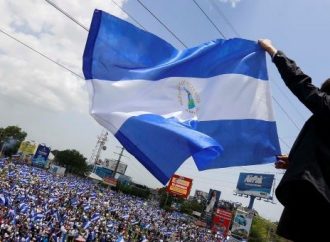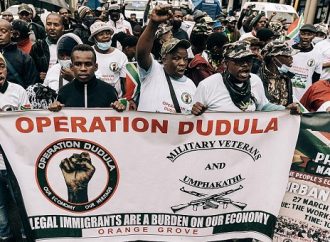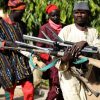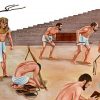Africa’s 21 years of democracy. Although having lost much of its appeal today, it’s an ideology we’ve been force-fed. It’s based on the fact that South Africa is one of the most diverse countries in the world, and we need to embrace this diversity (all very happy-clappy, wishy-washy and fairytale-like). Despite this, it still feels
Africa’s 21 years of democracy. Although having lost much of its appeal today, it’s an ideology we’ve been force-fed. It’s based on the fact that South Africa is one of the most diverse countries in the world, and we need to embrace this diversity (all very happy-clappy, wishy-washy and fairytale-like). Despite this, it still feels as if South Africa is only represented from two perspectives either black or white, and anyone else basically doesn’t exist.
As a so-called coloured person living in South Africa, I feel this is becoming more apparent, and sadly has an overwhelming amount of truth to it. Whether this is being done intentionally or not is an entirely different subject for debate. South Africa’s diversity would make you think that there’s room for more than only two voices, but that’s not the case. The coloured voice is heard and acknowledged so little that as a coloured person, any attempt to make your voice heard is seemingly futile.
Being coloured in South African
Politically, when issues of race, culture, or class, come up it’s seen from one of two perspectives: the underprivileged black perspective or the over-privileged white perspective.
The coloured perspective isn’t even brought up or let alone thought of. Many coloured people share the same level of poverty, unemployment and social issues as black people, but are overlooked. Before democracy, we dealt largely with the same amount and kinds of oppression as black people, and the struggle was as much ours as any black person at the time. We have a rich history and heritage within South Africa and suffered just as much as any black person when the plague of colonization took over.
In the media, coloured people are represented in one of two extremes: the first being in a comical light where the stereotypical Cape Coloured accent is used and indefinitely over-exaggerated. In addition to this, we’re portrayed with having no front teeth.
The second extreme is a grim and frightening one; we’re portrayed as ravenous gangsters who have an unrelenting urge to kill and commit the most atrocious crimes known to man. If we’re lucky, we’ll be portrayed in a “different” light, and get cast in a local Afrikaans soapie, or used in some advertorial/modelling campaign for our natural hair, to help try and convey some notion of diversity.
The ideology of the rainbow nation seems to be just that, an idea. Something that’s not tangible, something we fantasies about. South Africa has come a long way and it’s not only doom and gloom, but how can we promote this idea of acceptance and tolerance for all when not everyone is being listened to, acknowledged or made to feel as if they are as much a part of this country as any black or white person?


















Leave a Comment
Your email address will not be published. Required fields are marked with *